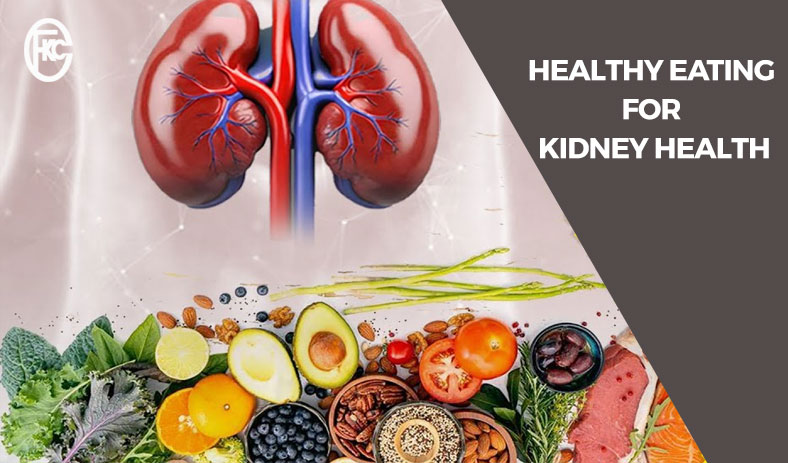
Overview:
Kidneys play a vital role in filtering waste and excess fluids from the blood by balancing electrolytes, and regulating blood pressure for overall well-being. Adopting a kidney-friendly diet can help support these essential functions and prevent or manage kidney-related conditions, such as chronic kidney disease (CKD). Here are some nutritional tips to support your kidneys:
1. Control Protein Intake
For those with existing kidney issues too much protein can strain the kidneys. It’s important to strike a balance:
Moderate protein intake: Aim for moderate portions of high-quality protein sources like lean meats, poultry, fish, eggs, and plant-based proteins like beans and legumes.
Adjust according to kidney function: If you have CKD, your healthcare provider may recommend limiting protein to reduce the workload on your kidneys.
2. Limit Sodium
Sodium is essential for maintaining fluid balance, but excessive intake can lead to high blood pressure, a significant risk factor for kidney damage.
Reduce salt usage: Minimize the use of table salt and opt for herbs, spices, or salt-free seasonings to flavor food.
Avoid processed foods: Processed foods, including canned soups, packaged snacks, and deli meats, are often high in sodium. Choosing fresh, whole foods can help reduce sodium intake.
Check labels: Look for low-sodium or sodium-free options when purchasing packaged foods.
3. Manage Potassium Levels
Potassium is necessary for nerve and muscle function, but in excess, it can be harmful to people with kidney disease. The kidneys regulate potassium levels, so when they are not functioning well, potassium can build up in the blood, leading to complications:
Monitor potassium-rich foods: Foods like bananas, oranges, potatoes, and tomatoes are high in potassium. Depending on your kidney function, your healthcare provider may recommend limiting these foods.
Choose lower-potassium alternatives: Opt for apples, berries, grapes, and cauliflower, which are lower in potassium.
4. Phosphorus Control
High levels of phosphorus can lead to bone and cardiovascular issues:
Limit high-phosphorus foods: Reducing intake of dairy products, nuts, seeds, and certain whole grain foods can help maintain healthy phosphorus levels.
Read food labels: Some processed foods contain phosphorus additives, so it’s important to check ingredient lists for terms like “phosphates” or “phosphoric acid.”
5. Stay Hydrated
The kidneys remove waste from the blood and maintain proper function with adequate hydration. However, the amount of fluid needed can vary based on individual kidney function:
Drink enough water: Aim to drink enough water to stay hydrated, but avoid excessive fluid intake if advised by your healthcare provider.
Monitor fluid intake: For those with CKD, fluid restrictions may be necessary to prevent fluid buildup.
6. Avoid Excessive Sugar and Unhealthy Fats
Excessive sugar and unhealthy fats can contribute to obesity, diabetes, and hypertension, all of which are risk factors for kidney disease:
Limit sugary foods and drinks: Reducing consumption of sugary snacks, desserts, and beverages can help manage weight and blood sugar levels.
Choose healthy fats: Incorporate sources of healthy fats, such as olive oil, avocados, and nuts, while avoiding trans fats and saturated fats found in fried foods and baked goods.
Conclusion
Adopting a kidney-friendly diet is a proactive way to support your kidneys and overall health. By controlling protein intake, limiting sodium and phosphorus, managing potassium levels, staying hydrated, and avoiding excessive sugar and unhealthy fats, you can help protect your kidneys and maintain their vital functions. Always consult with a healthcare provider or dietitian for personalized advice, especially if you have existing kidney conditions.